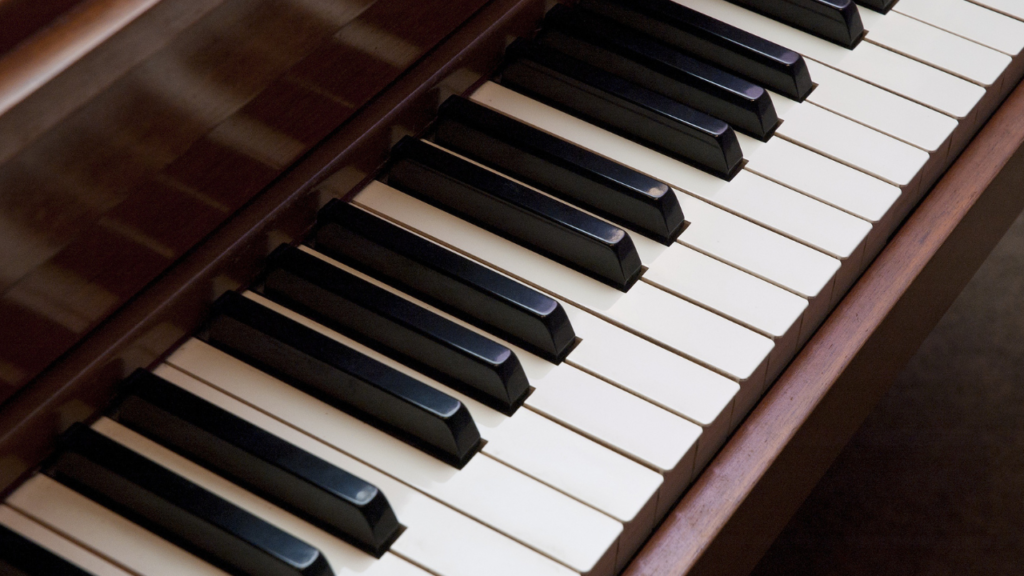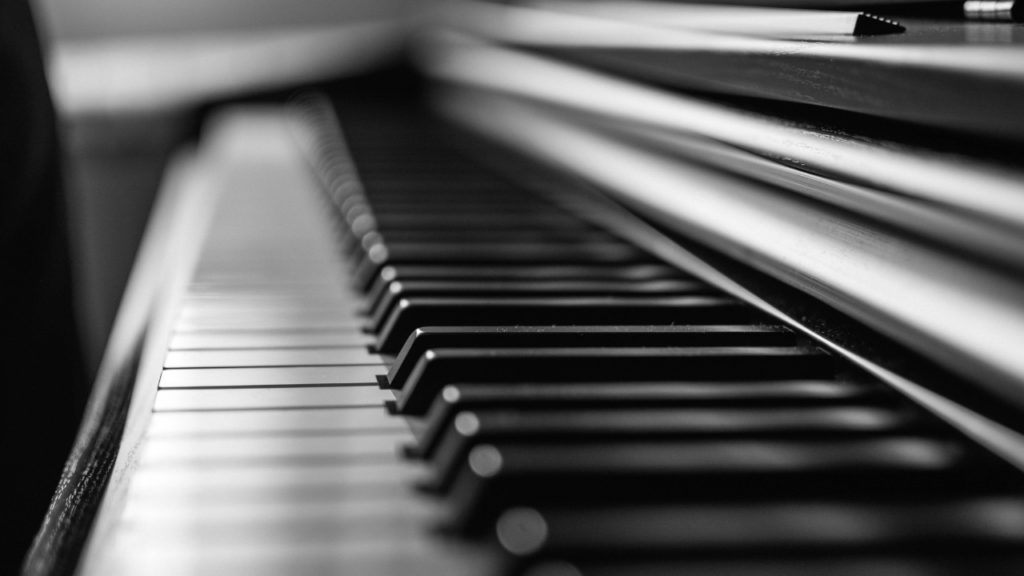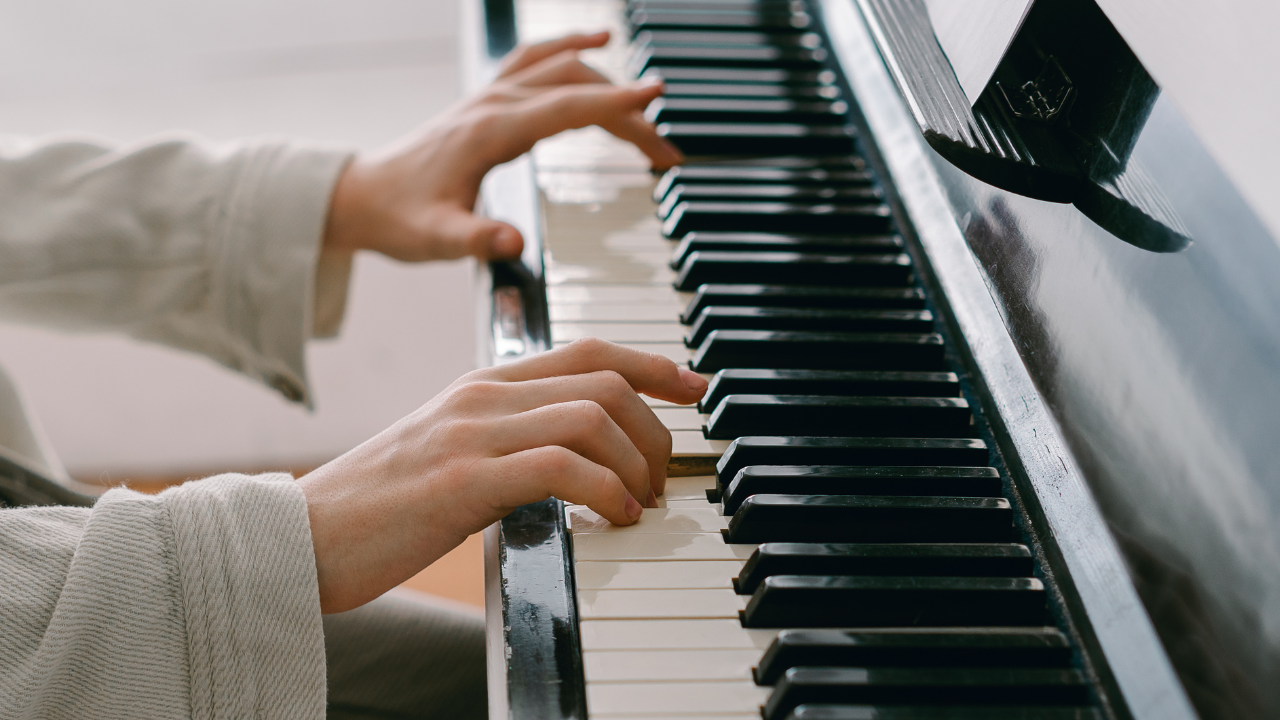Are you considering learning piano but don’t have access to a traditional piano? Don’t worry! With a keyboard, you can start your musical journey. Read on to find out how to learn piano on a keyboard and the tips to get started.
Introduction:
Music has the power to connect people, inspire emotions, and create memories that last a lifetime. If you’re interested in learning how to play piano but don’t have access to a traditional one, you might wonder if you can learn piano on a keyboard. The answer is yes! In this article, we will explore the advantages of using a keyboard to learn piano and provide you with tips to get started on your musical journey.

Advantages of Learning Piano on a Keyboard:
Learning piano on a keyboard has its advantages, especially for beginners. Here are some benefits of using a keyboard to learn piano:
Portability
One of the most significant advantages of learning piano on a keyboard is its portability. Unlike traditional pianos, keyboards are lightweight and easy to move around. You can practice anywhere you want, whether it’s in your bedroom, living room, or even outside.
Cost-effective
Keyboards are generally more affordable than traditional pianos. A decent keyboard can be purchased for a few hundred dollars, while a good piano can cost thousands of dollars. Additionally, keyboards require less maintenance, which can save you money in the long run.
Technology Advancements
Modern keyboards have advanced technology features that can help you learn piano. Many keyboards have built-in tutorials and lessons, which can guide you through the learning process. They also come with recording features, so you can listen to your performance and make improvements.
Flexibility
Keyboards offer more flexibility than traditional pianos. With a keyboard, you can adjust the volume and use headphones, which allows you to practice without disturbing others. You can also adjust the tone and sound effects to match your preferences.
Tips for Learning Piano on a Keyboard
Now that you know the advantages of learning piano on a keyboard, here are some tips to help you get started:
Get a Good Quality Keyboard
Investing in a good quality keyboard can make a significant difference in your learning experience. Look for a keyboard with at least 61 keys, touch sensitivity, and weighted keys that mimic the feel of a traditional piano. Make sure the keyboard is also compatible with a sustain pedal, which can help you produce a fuller sound.
Find a Good Teacher or Online Lessons
Having a good teacher or online lessons can help you learn piano on a keyboard more effectively. A teacher can provide you with personalized feedback and guidance, while online lessons can offer a flexible and self-paced learning experience.

Learn the Basics
Before you start playing your favorite songs, it’s important to learn the basics of piano playing. Learn how to read sheet music, understand scales and chords, and practice proper hand and finger placement.
Practice Consistently
Like any other skill, learning piano requires consistent practice. Set a regular practice schedule and stick to it. Aim to practice for at least 30 minutes a day, five days a week.
FAQs
Q: Do I need a sustain pedal for a keyboard?
A: While you can play without a sustain pedal, it can help you produce a fuller sound and enhance the expressiveness of your playing.
Q: Can I learn piano on a 61-key keyboard?
A: Yes, a 61-key keyboard can be enough for a beginner to learn piano. However, if you’re serious about learning piano, consider investing in a keyboard with more keys
Q: How long does it take to learn piano on a keyboard?
A: The length of time it takes to learn piano on a keyboard depends on various factors, such as the time you put into practice, your skill level, and your learning approach. However, with consistent practice and dedication, you can see progress in a matter of months.
Q: Can I play classical music on a keyboard?
A: Yes, you can play classical music on a keyboard. However, keep in mind that keyboards have different features and sounds than traditional pianos, so the music may not sound the same.
Q: Can I switch to a traditional piano after learning on a keyboard?
A: Yes, you can switch to a traditional piano after learning on a keyboard. While there may be some differences in feel and sound, the skills you learn on a keyboard will transfer to a traditional piano.
Can You Learn Piano on a Keyboard?
Yes, You Can!
Conclusion:
In conclusion, learning piano on a keyboard is an excellent option for beginners who don’t have access to a traditional piano. Keyboards are portable, cost-effective, and offer advanced technology features that can aid in the learning process. By investing in a good quality keyboard, finding a good teacher or online lessons, learning the basics, and practicing consistently, you can start your musical journey and improve your piano skills. So, can you learn piano on a keyboard? Absolutely! With dedication and perseverance, you can achieve your musical goals and create beautiful melodies.

